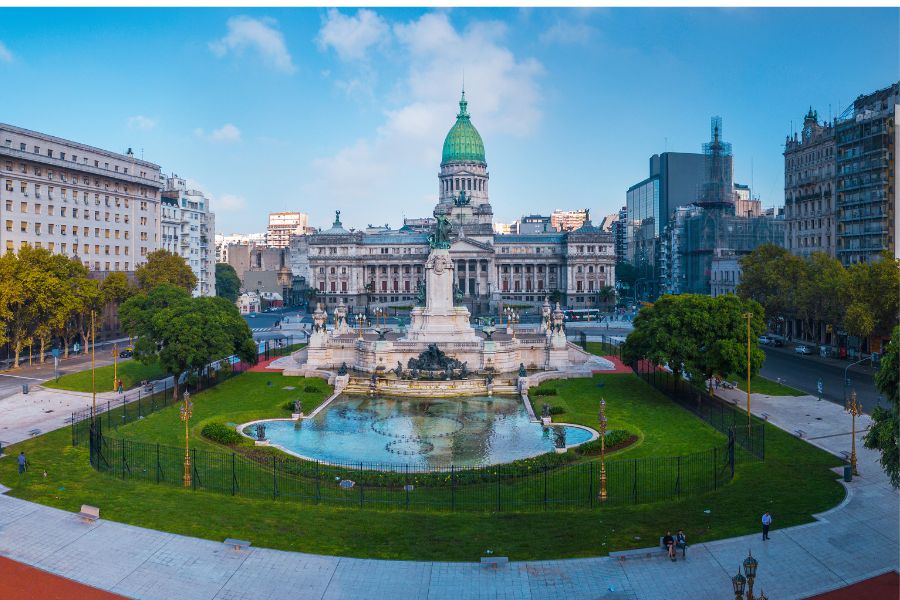Argentina, the land of tango, Malbec, and the Andes, is also quietly becoming a top destination for digital nomads. Despite enduring multiple economic crises, including chronic inflation and debt defaults, Argentina is in the midst of a profound transformation under President Javier Milei.
His presidency has ushered in a brutal efficiency drive aimed at slashing bureaucracy, reducing state intervention, and unleashing private enterprise. These radical reforms are giving rise to a renewed entrepreneurial spirit, cutting red tape, and opening doors to innovation and self-starting ventures.
With its eclectic culture, bustling cities, and shockingly affordable lifestyle, this South American giant offers more than a postcard-perfect escape. For digital nomads, it’s a land of opportunity, where resourcefulness is rewarded and creative thinkers can thrive.
Buenos Aires, in particular, pulses with the beat of creativity and cosmopolitan flair. Whether you’re a freelance designer or a remote coder, the Argentine lifestyle seduces with charm, flavour, and café culture that rivals any European capital.
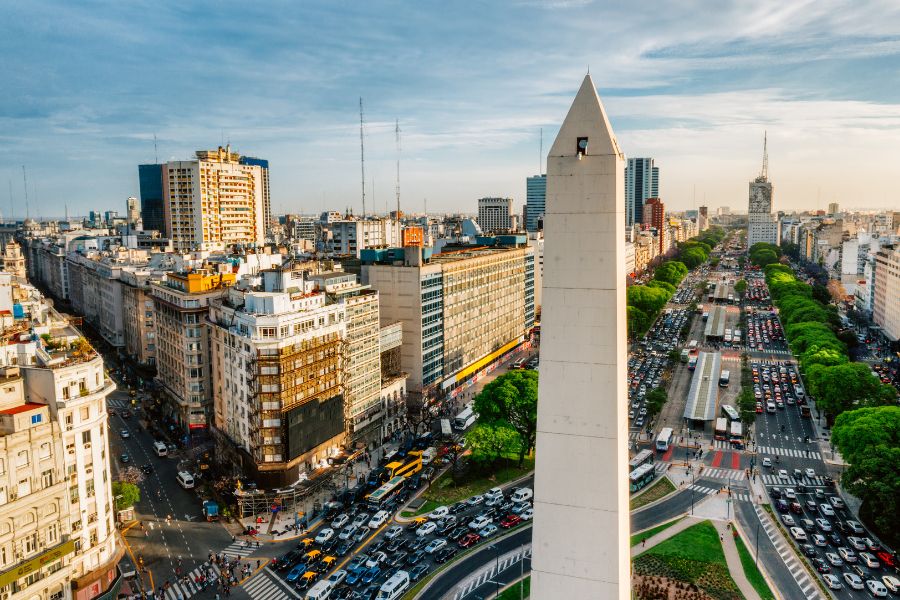
Argentina Digital Nomad Visa Overview
In 2022, Argentina launched a special residency program tailored for digital nomads. While it’s not a visa in the traditional sense, the “Digital Nomads” temporary residence permit allows remote workers to live legally in the country for six months, with the option to renew for another six. This initiative from the Dirección Nacional de Migraciones targets international freelancers and remote employees who earn income outside Argentina.
Key Features
- Valid for 180 days, renewable once.
- Applicant must work for a foreign company or be self-employed with foreign clients.
- Grants temporary residency, not permanent.
- Does not permit work for Argentine companies.
Eligibility Requirements
- A valid passport with at least six months remaining.
- Proof of ongoing remote employment or freelance contracts with foreign companies.
- Suggested income: minimum USD 2,500 monthly (not officially fixed).
- A clean criminal record from the applicant’s country of residence.
- Health insurance covering Argentina.
How to Apply
The visa application process is surprisingly straightforward. You can apply from within Argentina or at an Argentine consulate abroad. The official application platform is accessible online through the Dirección Nacional de Migraciones. To begin the process, visit the official application portal here: Apply for the Argentina Digital Nomads Residence Permit.
Step-by-step:
- Fill out the application online via Argentina’s immigration website or in person.
- Upload digital copies of the required documents.
- Pay the application fee (~USD 200–300).
- Wait for processing (30 to 45 days on average).
- Receive your temporary residence card upon approval.
Required Documents
- Valid passport (bio page scan).
- Recent passport-style photo.
- Proof of employment or freelance income (contracts, payslips, invoices).
- Proof of health insurance.
- Background check from your home country, apostilled.
- Motivation letter explaining your intent to reside in Argentina.
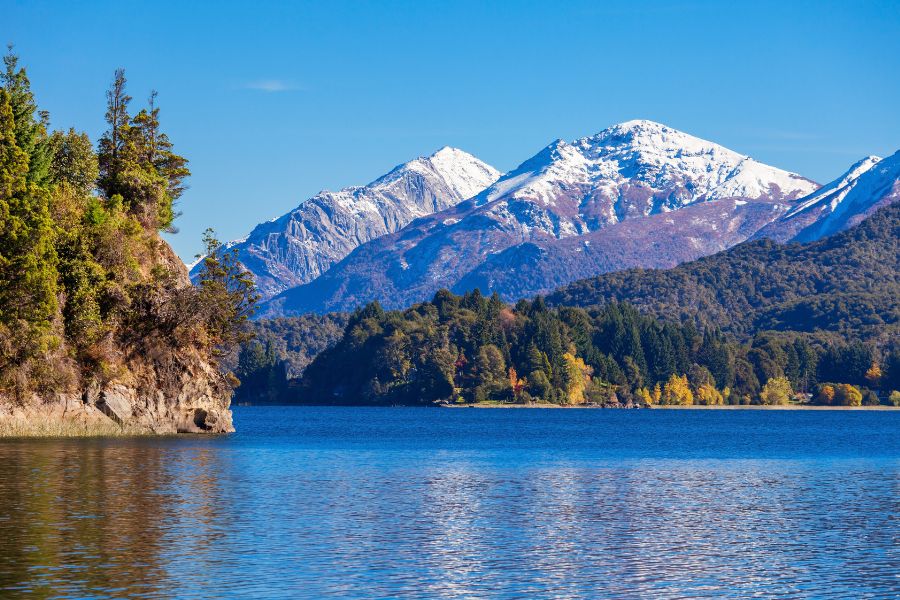
Tax Situation for Digital Nomads
Tax residency in Argentina is defined by the 12-month rule. You become a tax resident only after spending more than 12 months continuously in the country.
- Non-tax residents (under 183 days): only taxed on Argentine-sourced income.
- Tax residents: taxed on worldwide income.
- Most digital nomads do not trigger local tax obligations.
Given that remote workers usually earn abroad, they remain tax-free under local law unless they establish deeper residency or earn locally. Argentina does not yet have a specific digital nomad tax framework, but its flexible residency definitions work in favour of those staying under a year. For digital nomads who do cross the 12-month mark, it’s advisable to consult a local tax specialist to avoid complications.
“Argentina’s taxation for remote workers is still a grey area, but under current laws, most digital nomads avoid income tax as long as they don’t stay too long or earn locally.” – Ana Ramirez, Buenos Aires-based tax advisor
The country operates under a progressive tax regime for residents, but non-residents are typically taxed only on their Argentine income. This makes Argentina attractive to location-independent earners paid in hard currency from abroad.
The volatile peso plays to a nomad’s advantage. With income in USD or EUR, your purchasing power skyrockets. The informal “blue dollar” rate often gives double the value of the official exchange, making your budget go far. To better understand the official guidelines, you can consult the AFIP (Administración Federal de Ingresos Públicos) website.

Tourist Visa vs. Digital Nomad Visa
For many, overstaying a tourist visa has been the go-to method for living in Argentina.
Tourist Visa Facts:
- Citizens from most Western countries get 90 days on arrival.
- You can extend once for another 90 days.
- Overstay penalty is about ARS 12,500 (~USD 15 via blue rate), though the fee may fluctuate with inflation. Officially, this fine can be paid upon departure at the airport, and is rarely enforced harshly.
For confirmation, consult Argentina’s official migration authority: Dirección Nacional de Migraciones – Stay Extension and Overstay Fine
| Feature | Tourist Visa | Digital Nomad Visa |
|---|---|---|
| Duration | 90–180 days | 180 days (renewable) |
| Status | Visitor | Temporary Resident |
| Remote Work | Technically not permitted | Permitted |
| Local Tax | No | No (if income is foreign) |
| Legality | Grey area | Fully legal |
| Cost | ~$15 fine | ~$200–300 application fee |
While many nomads still opt to pay the overstay fine, the digital nomad visa offers peace of mind, legal security, and easier setup for things like bank accounts or rentals.

Banking and Currency Challenges
Managing money in Argentina can be as complex as its tango steps. Digital nomads quickly discover that dealing with pesos and the country’s dual exchange rates is both an art and a necessity.
The Peso Problem: Argentina operates with an official exchange rate and a widely used informal rate known as the “blue dollar.” The gap between the two can be over 100%, making it highly advantageous to convert foreign cash via unofficial channels. For many nomads, this means bringing USD or EUR in cash and exchanging them at cuevas (informal exchange houses) for a better rate. Apps like DolarHoy and Bluelytics provide real-time updates on blue dollar rates.
Bank Account Limitations: Opening a local bank account as a foreigner—especially on a temporary residence permit—is possible but not guaranteed. Requirements vary by bank and can include:
- CUIT or CUIL number (Argentine tax ID)
- Proof of residence (utility bill or lease)
- Passport and immigration documents
- Proof of income or local employment (not applicable to digital nomads)
Even with these, banks can still deny accounts to temporary residents without a long local history. For this reason, most digital nomads use alternative solutions:
- Wise (formerly TransferWise): to receive and send money with favorable exchange rates.
- Revolut or N26: international cards with currency conversion.
- Western Union: popular for receiving USD from abroad and converting into pesos at blue dollar rates.
Credit Card Challenges: Foreign cards often charge at the official rate, unless they participate in Argentina’s new MEP exchange system. Still, cash remains king. Many shops and services offer discounts for cash payments.
Tip: Avoid relying solely on ATMs. Withdrawal fees are high, limits are low, and pesos dispensed are valued at the weaker official rate.
For ongoing currency tracking and advice, visit Bluelytics or DolarHoy.
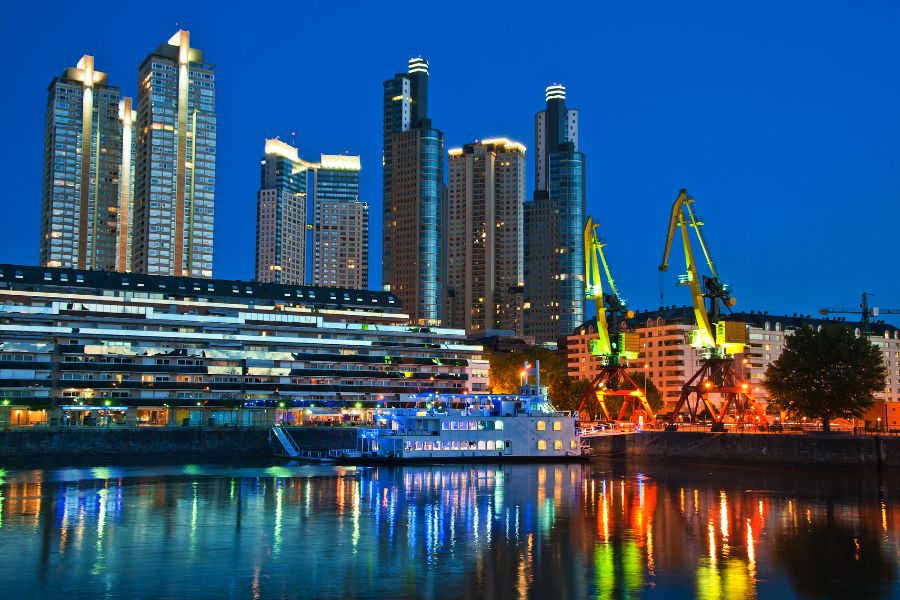
Life for Digital Nomads in Argentina
Buenos Aires reigns supreme for remote workers. With its fusion of Latin passion and European elegance, the city boasts:
- Coworking spaces: AreaTres, HIT Cowork, WeWork
- Digital nomad hotspots: Palermo Soho, San Telmo, Recoleta
- Food, art, and nightlife scenes that stretch until sunrise
- An endless list of parks, bookstores, and music venues
The city’s infrastructure supports digital work: fiber-optic internet is increasingly available, public transport is extensive and cheap, and the café culture rivals that of Paris. You can sip an espresso in a 19th-century café while working on your next project, and chances are the staff won’t blink if you linger for hours.
Community: Buenos Aires has an active digital nomad and expat scene. Facebook groups, WhatsApp chats, and Meetup events make it easy to connect with other remote workers. Language exchanges and tech meetups happen weekly, offering a fast track to making friends.
Estimated Monthly Budget:
- Rent: $300–600 (shared or studio)
- Food & drink: $200–400
- Coworking: $100–200
- Transport: $20–50
- Activities: $100–200
- Total: ~$900–$1500
Other Cities to Consider:
- Córdoba: youthful energy, large student population, growing startup scene
- Mendoza: wine country living at a slow pace, excellent work-life balance
- Bariloche: lakes and mountains for nature lovers, ideal in summer or ski season
Pros:
- Affordable cost of living
- Cultural and culinary richness
- Strong cafe and remote work culture
- Friendly locals and social atmosphere
- Easy to navigate and explore by public transport
Cons:
- Currency volatility and exchange rate gaps
- Bureaucracy and paperwork can be frustrating
- Protests and political unrest occasionally disrupt daily life
- Air pollution in central areas during peak hours
Final Word: Argentina offers not just a place to live, but a lifestyle. For digital nomads craving community, creativity, and cost-efficiency, it hits all the sweet spots. Whether you’re sipping mate in a leafy square, hiking through Patagonia, or coding from a 1920s café, life in Argentina feels like a film set — raw, real, and rich with possibility.
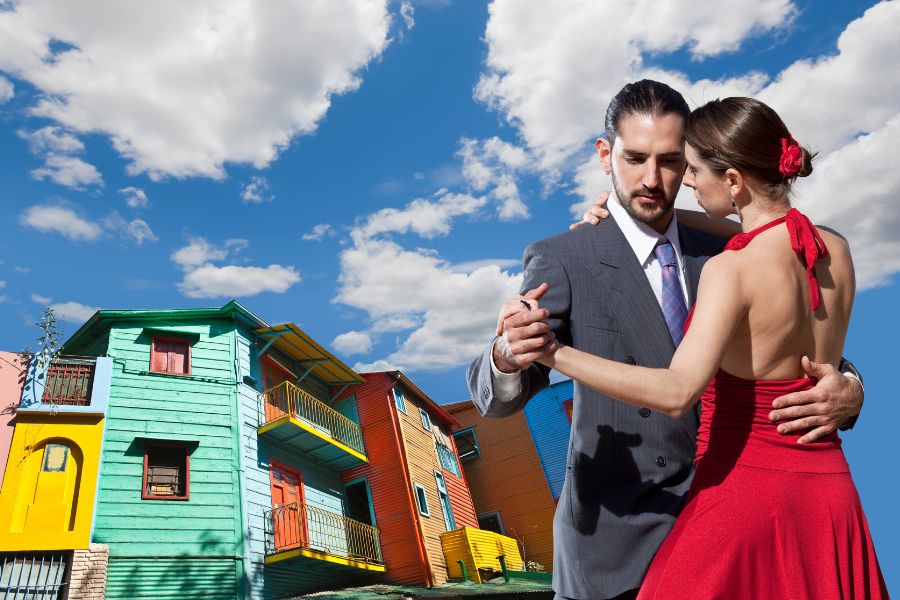
FAQ
Can I apply from inside Argentina?
Yes. Applications can be submitted either from abroad or once you’re already in the country.
Do I need insurance?
Yes, health insurance is mandatory.
How long does it take to process the visa?
Approximately 30 to 45 days.
Can I work for an Argentine company?
No. The visa is designed only for remote work for foreign companies.
Is overstaying really that easy?
Technically, yes—and many do. But there are risks of arbitrary enforcement and future travel restrictions.
Can I bring my spouse or family?
Currently unclear. Family dependents may need to apply separately or consult with immigration.
Conclusion – A Nomad’s Paradise with Caveats
Argentina welcomes nomads with tango beats and affordable luxury. The digital nomad visa provides a legal framework that enhances your stay, though many still opt to fly under the radar with tourist visas. Whichever path you choose, Argentina delivers a rich, vibrant lifestyle for remote workers seeking a culturally intoxicating base in South America.
It’s the best of Europe with the soul of Latin America – all at half the price.


